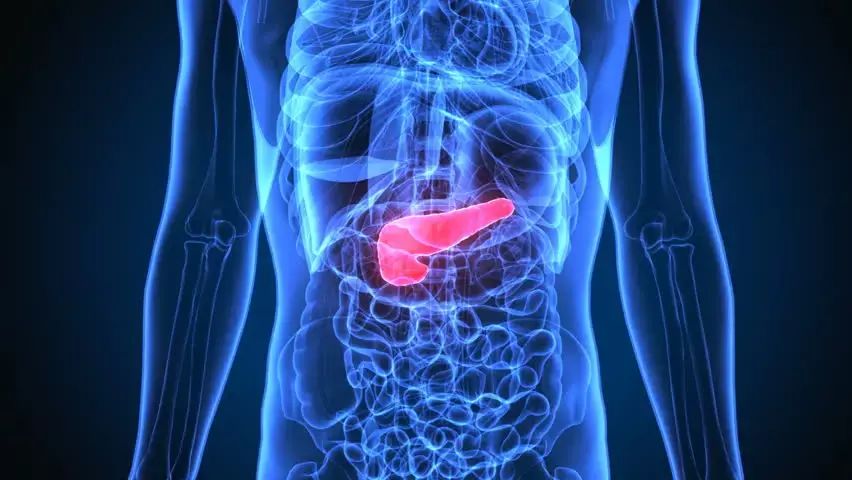- Home
- Medical news & Guidelines
- Anesthesiology
- Cardiology and CTVS
- Critical Care
- Dentistry
- Dermatology
- Diabetes and Endocrinology
- ENT
- Gastroenterology
- Medicine
- Nephrology
- Neurology
- Obstretics-Gynaecology
- Oncology
- Ophthalmology
- Orthopaedics
- Pediatrics-Neonatology
- Psychiatry
- Pulmonology
- Radiology
- Surgery
- Urology
- Laboratory Medicine
- Diet
- Nursing
- Paramedical
- Physiotherapy
- Health news
- Fact Check
- Bone Health Fact Check
- Brain Health Fact Check
- Cancer Related Fact Check
- Child Care Fact Check
- Dental and oral health fact check
- Diabetes and metabolic health fact check
- Diet and Nutrition Fact Check
- Eye and ENT Care Fact Check
- Fitness fact check
- Gut health fact check
- Heart health fact check
- Kidney health fact check
- Medical education fact check
- Men's health fact check
- Respiratory fact check
- Skin and hair care fact check
- Vaccine and Immunization fact check
- Women's health fact check
- AYUSH
- State News
- Andaman and Nicobar Islands
- Andhra Pradesh
- Arunachal Pradesh
- Assam
- Bihar
- Chandigarh
- Chattisgarh
- Dadra and Nagar Haveli
- Daman and Diu
- Delhi
- Goa
- Gujarat
- Haryana
- Himachal Pradesh
- Jammu & Kashmir
- Jharkhand
- Karnataka
- Kerala
- Ladakh
- Lakshadweep
- Madhya Pradesh
- Maharashtra
- Manipur
- Meghalaya
- Mizoram
- Nagaland
- Odisha
- Puducherry
- Punjab
- Rajasthan
- Sikkim
- Tamil Nadu
- Telangana
- Tripura
- Uttar Pradesh
- Uttrakhand
- West Bengal
- Medical Education
- Industry
Colchicine benefits in treatment of type 2 autoimmune pancreatitis: Study

In a rare case, two patients with type 2 autoimmune pancreatitis (AIP) experienced clinical improvement and normalization in serological markers following administration of colchicine years after initially presenting to the emergency department and being treated for symptoms, reported Emanuel Della-Torre, MD, PhD, of the Universita Vita-Salute San Raffaele in Milan, and colleagues in a research letter in the Annals of Internal Medicine.
Type 2 autoimmune pancreatitis (AIP) is characterized histologically by a neutrophilic infiltrate organized in granulocytic epithelial lesions (GELs) Corticosteroids are used to induce remission, and azathioprine is commonly used as maintenance therapy.
The patients were two young men, a 19-year-old, who first presented with symptoms in November 2017, and a 25-year-old, who first presented with symptoms in April 2015. Neither had a history of alcohol or recreational drug misuse. Both presented to the emergency department with abdominal pain, and each had elevated levels of serum amylase and serum lipase, but serum IgG4, chromogranin A, neuron-specific enolase, and carbohydrate antigen 19-9 were all normal. Diagnostic imaging excluded gallstones and showed diffuse enlargement in the pancreas of both patients.
Following an endoscopic ultrasound-guided fine-needle biopsy to confirm their diagnosis, both patients were started on oral prednisone and had their prednisone dosage tapered over the course of 6 months.
The authors found the following:
- No genetic mutations (CTRC, CFTR, PRSS1, or SPINK1) were found in either patient.
- The prednisone therapy alleviated pancreatic gland swelling in the 19-year-old patient, and the 25-year-old patient experienced serologic remission, both after a month of treatment.
- Five months later, the 19-year-old patient started azathioprine and was also treated with subcutaneous methotrexate and prednisone, tapered over 4 months, each time following increases in his amylase and lipase levels. In June 2019, imaging showed "diffuse enlargement" of the pancreas, and the patient refused glucocorticoids. His methotrexate was tapered and withdrawn when he started oral colchicine.
- The 25-year-old patient experienced a recurrence of abdominal pain in June 2020, as well as increases in amylase and lipase levels and enlargement of the pancreas on imaging.
- After starting oral colchicine, serologic and radiographic findings normalized within 2 weeks for the 19-year-old patient and 20 days later for the 25-year-old patient. As of August 2021, neither patient experienced additional flares.
Thus, the researchers concluded that formal clinical studies are needed to confirm these "preliminary findings," but concluded that based on these results, colchicine could be a promising treatment for type 2 Autoimmune Pancreatitis.
Reference:
Treating Type 2 Autoimmune Pancreatitis With Colchicine: A Case Series by Chiabrando F et. al published in the Annals of Internal Medicine.
https://doi.org/10.7326/L21-0281
Dr. Shravani Dali has completed her BDS from Pravara institute of medical sciences, loni. Following which she extensively worked in the healthcare sector for 2+ years. She has been actively involved in writing blogs in field of health and wellness. Currently she is pursuing her Masters of public health-health administration from Tata institute of social sciences. She can be contacted at editorial@medicaldialogues.in.
Dr Kamal Kant Kohli-MBBS, DTCD- a chest specialist with more than 30 years of practice and a flair for writing clinical articles, Dr Kamal Kant Kohli joined Medical Dialogues as a Chief Editor of Medical News. Besides writing articles, as an editor, he proofreads and verifies all the medical content published on Medical Dialogues including those coming from journals, studies,medical conferences,guidelines etc. Email: drkohli@medicaldialogues.in. Contact no. 011-43720751


